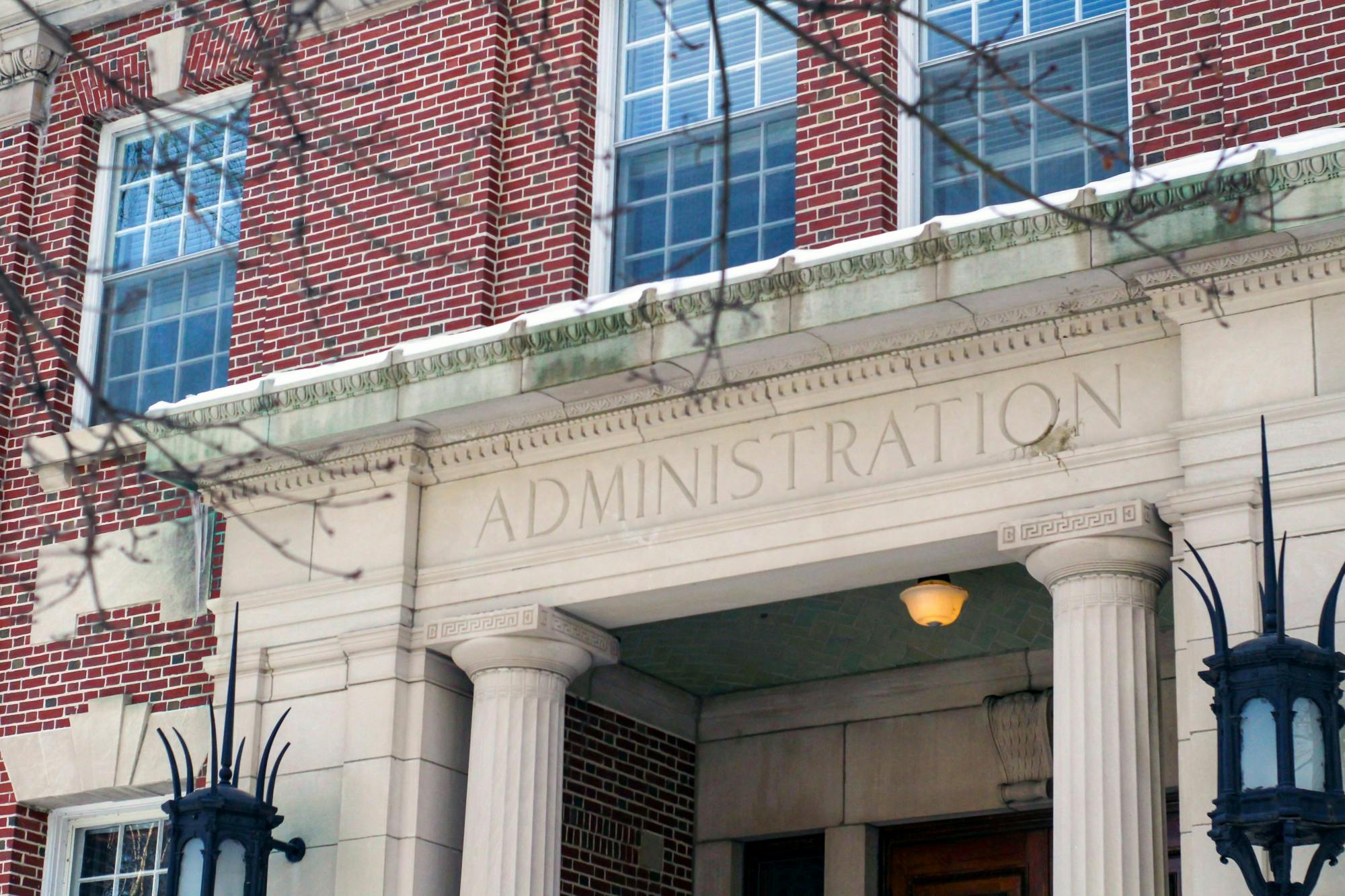On Wednesday, Feb. 14, College President Sian Beilock, Provost David Kotz and Dean of the College Scott Brown met with approximately 50 to 70 students at open office hours from 12 to 12:45 p.m. Many students present voiced their concerns with the College’s reinstatement of its test-mandatory admissions policy on Feb. 5, though the office hours were open to “anyone who wanted to discuss a question or idea with the president and provost,” according to an email statement by Kotz.
Multiple students who attended described the atmosphere of the meeting as “tense.” One member of the Class of 2027, who asked to remain anonymous to speak candidly about his experience there, pointed to the presence of at least three officers from the Department of Safety and Security as a source of immediate discomfort for many of the students who attended.
“Even at matriculation, when there were far more students meeting Beilock, there was not a single officer present … in the room,” he said. “So, for 50 students of color to be in the room, and [now] there has to be the head of [DoSS] there, it felt tense the second we walked in.”
College spokesperson Jana Barnello stated that the presence of DoSS officers is “standard practice” at “larger events.”
Hosaena Tilahun ’25 explained that the Black Alumni of Dartmouth Association was “furious” when informed about the presence of DoSS officers. Tilahun is one of the organizers of the Coalition Against Testing, a student activist group formed in response to the College’s reinstatement of standardized testing.
“Inviting the presence of police officers in a supposedly open dialogue felt intimidating and threatening,” she said. “It felt like we were being policed.”
DoSS did not respond to a request for comment.
Tilahun said she believed Beilock was reluctant to call on students at the office hour who would be more willing to “confront” her. She explained that there were several moments during which she and Beilock “locked eyes” and Beilock “[stared] at me for four seconds, and then [called] on someone else.”
“She has an idea of who was outspoken … and will use whatever she can to constrict our space and our feeling of belonging on this campus,” Tilahun said.
The anonymous student alleged that it was “apparent” that Beilock felt “agitated” when talking with “certain people.” More specifically, the anonymous student said that when a Black student openly criticized the test-mandatory reinstatement and questioned why students were not involved in the decision-making process, Beilock seemed dismissive of his concerns.
“[Beilock] basically said that students don’t [have] the final say, so she didn’t need to consult the students,” he said.
However, the anonymous student said that Beilock seemed more attentive to the same issue when the question was posed by a white student who agreed with her on the issue.
“[The student] started off by saying he was in support of Beilock’s decision … but he also felt that students should have been consulted, and her response to that was ‘Oh, maybe I’ll take that into consideration next time,’” the anonymous student said.
College spokesperson Jana Barnello wrote in an email statement that “the office hours were one of many valuable forums to hear and understand the wide variety of viewpoints on the decision.”
Tilahun and the anonymous student said that they felt Beilock’s answers to several questions were unsatisfactory.
According to Tilahun, when a student asked about the influence of eugenics on the origins of the SAT, Beilock interrupted them and told them that was “not the correct history.”
The anonymous student expressed concerns that the reinstatement of the standardized test requirement will result in a less diverse applicant pool than that of previous applicant classes under the test-optional policy.
“[The people who] are going to be brought to the applicant pool are people who score well on the test and are confident in their applications,” the anonymous student said. “Historically, that has not been students of color or low-income students.”
In her email statement, Barnello acknowledged student concerns that standardized tests reflect inequality in access and educational resources. The research used to decide to reinstate the test-mandatory policy “does not dispute this, and neither does Dartmouth,” she wrote. Instead, the College’s understanding is that “tests, when assessed in the context of meaningful environmental factors, can be used specifically to help Dartmouth expand access and enhance diversity.”
“We are deeply committed to fostering and maintaining a diverse, inclusive community where all members are valued and all perspectives are heard,” Barnello wrote.
Correction Appended (Feb. 23, 4:50 p.m.): A previous version of this article’s subtitle described the office hours in wording that was not necessarily true. This article has been updated to reflect a more accurate description of the office hours.




